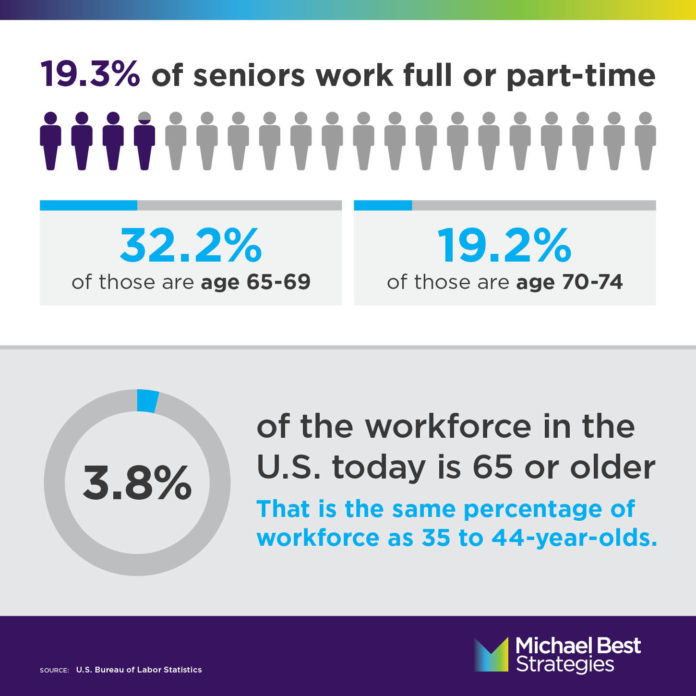
Bureau of Labor Statistics data shows that 3.8% of today’s U.S. workforce is 65 or older. That’s the same percentage of workforce as the 35-44 demographic.
All totaled, 19.3% of seniors are still working full or part-time. That includes:
- 32.2% of those age 65-69
- 19.2% of those age 70-74
Those are the highest numbers since the creation of Medicare in 1965, according to an analysis by Bloomberg News. The trend was captured in this recent story out of northern Wisconsin.
Not surprisingly, many seniors are also delaying enrollment in Medicare products to well past age 65. There may be a number of reasons for this:

- The economic collapse of 2008 took a big toll on their retirement accounts. According to the Urban Institute, retirement accounts lost $2.7 trillion in the last two quarters of 2008 and the first quarter of 2009.
- Some seniors may be waiting for a spouse to retire so they can enroll in Medicare together. On average, there is a 2.3-year age gap among American married couples, and that number may be higher for today’s seniors.
- Some of those seniors working full-time today may prefer the coverage and cost of their employer-sponsored health plan.
This trend impacts both government Medicare spending and private Medicare Advantage and Medicare Supplement issuers. Michael Best Strategies will continue to track trends for implications and impacts.





